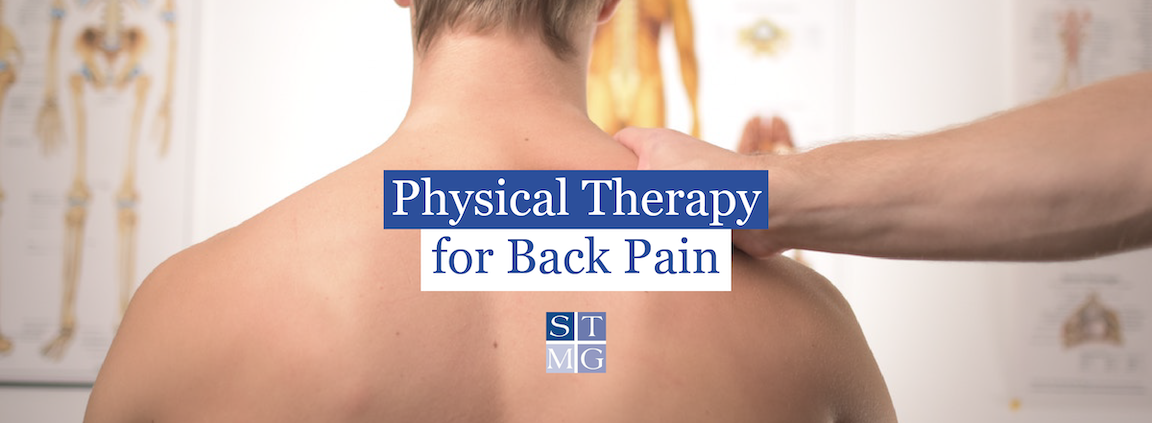Why Are My Prescriptions Getting More Expensive?
/in Uncategorized/by Nicole ClawsonIf it feels like your prescription drugs are getting more expensive, know that it’s not in your head. And it’s not normal economic inflation either! The fact is, the average American spends $1,208 per year on prescription drugs (latest year data available: 2016). That’s a 119% increase from $1,014 in 2013 and a staggering 313% increase from the $385 spent per year in 1997.
In less than two decades, prescription drug spending increased more than 3x.
And, no, it’s not simply a matter of Americans consuming more prescription drugs. A study published earlier this year in Health Affairs revealed that from 2008 to 2016, the costs of oral and injectable brand-name drugs increased by 9.2 percent and 15.1 percent respectively.
How Can I Get Lower Prices on My Prescription Medications?
While prices are increasing, patients may have some options for for getting lower prices. Not all pharmacies are created equal. Prices can vary significantly on some drugs. (And don’t always assume that the big box store pharmacies have the best deals!)
Want to save money?
Log into your account with your health insurer. Many insurers offer a tool for looking up prescription medication prices in your area. In some cases, these prices may even be updated on a daily basis, providing accurate and actionable data that you can use to keep more money in your pocket. (Note: it’s worth remembering that price may not accurately represent your actual actual out-of-pocket costs. Be sure you understand how your health insurance provider or Medicare plan reimburses covered medications.)
Learn to Ask the Right Questions
You don’t know what you don’t know, right? If you want to save money on your prescriptions in Nashville, you might be able to lower your monthly medication costs simply by asking the right questions of your doctor at St. Thomas Medical Group! Jot down these questions and take them with you to your next appointment. Depending on your medications and insurance, one or more of these questions just may unlock the answer to produce significant savings in your health care costs…
#1 Is there a generic version of this drug?
Sure, you know that many name brand prescription drugs also have generic versions. But did you know that these generic drugs are required by law to have the same active ingredients and meet the same quality standards? When it comes to generics, they can be every bit as effective and safe as the name brands… just cheaper!
#2 Should I be ordering in bulk?
Purchasing a three-month supply of prescriptions is cheaper per dose than buying just a 30-day supply, right?
Well… it depends…
While buying in bulk might make sense a lot of the time, it doesn’t make sense when the price of a drug temporarily spikes. Sometimes it’s better to ride out the increased price, purchasing just a small supply, and waiting until prices settle back down before buying the larger quantity.
#3 Can someone review my list of meds?
If you take several prescription medications, you may want to see a Medication Therapy Management (MTM) Pharmacist. An MTM pharmacist can evaluate your medications, review your doctor’s notes, and suggest lower cost medications, lower dosage, or perhaps even find ways to combine medications.
#4 Is there a different way of getting this medicine?
Many drugs can be taken orally or injected. Many medications can be taken once a day (or even once a week) through extended-release, while others are taken multiple times a day with immediate-release. Your doctor may be able to change the format of your prescription in order to maximize your cost savings.
Have Questions About Your Prescriptions?
Talk to your Nashville doctor at St. Thomas Medical Group. We’re here to serve you. Call +1 (615) 297-2700 today.
How Does Physical Therapy Help With Back Pain?
/in Uncategorized/by Nicole ClawsonBack pain. Just about everybody gets it at some point.
The question is… how do you deal with it?
Rest, ice, opiates, yoga, stretching, sleeping… there are many responses, ranging from healthy to unhealthy… from pharmaceutical to natural.
Our team at St. Thomas Medical Group proudly partners with Results Physiotherapy in treating many instances of back pain. As we like to say, it’s time to think about physical therapy as a first line of defense. Physical therapy isn’t just for post-operative patients or individuals who have already tried other modalities.
If at all possible, treating back pain naturally through physical therapy is our preference. Of course, there are many considerations to take into account; patient and injury circumstances can vary widely. Talk to your doctor for diagnosis and treatment recommendation.
The Benefits of Physical Therapy for Back Pain
As detailed in a previous post, we recommend seeing a physical therapist first for a number of reasons:
- It may be faster to go straight to the physical therapist after an acute injury, rather than go to your primary care provider only to get referred to a physical therapist.
- It’s sometimes easier to get the care you need for a very specific back injury directly from the physical therapist.
- It can be cheaper to make just one co-pay directly to the physical therapist (as opposed to your primary care provider and your physical therapist).
Also, did you know that as of 2007, Tennessee residents are able to schedule appointments with physical therapists without physician referral? This makes your path to care so much easier!
4 Ways Physical Therapy Can Help With Back Pain
Our friends at Results Physiotherapy share four ways that physical therapy can help with lower back pain. If you’re one of the millions of Americans suffering from back pain and not seeking professional help, give them a buzz!
#1 Stretch – The number one recommendation? Stretch! If you suffer from lower back pain, exercising and stretching those muscles can provide strength and support, help maintain a normal range of motion, and potentially provide pain relief. Oftentimes, back pain is caused by lack of use.
#2 Movement Control Exercises – Whether you have acute or persistent back pain, it’s possible that the pain may be a result of back muscles compensating for poor posture or movement patterns. Movement control exercises help “retrain the spine’s muscles,” as Results Physiotherapy puts it. This can help provide greater support and reduce pain.
#3 Manual Therapy – In the case of non-specific back pain, the experts at Results Physiotherapy often recommend a combination of manual therapy and exercise. Manual therapy may include “joint and soft tissue mobilization, dry needling, passive stretching, and Myofascial release (gentle pressure to Myofascial connective tissue),” according to Craig O’Neil, Vice President of Learning and Affiliation.
#4 Education – Finally, education is a major component of the practice’s approach to using physical therapy to treat back pain. When patients are educated about their symptoms, knowledgable about how to care for themselves, and equipped to do so, better outcomes may be possible! Great physical therapists are able to help remove fear of movement, freeing patients to restore their bodies naturally with healthy stretches and exercises.
Schedule An Appointment About Your Back Pain
If you’re currently experiencing back pain in the Nashville area, you can schedule an appointment with Results Physiotherapy online or by calling +1 (615) 373-1350. Additionally, you can see a provider at St. Thomas Medical Group. Just call +1 (615) 297-2700, or make an appointment online.
How to Help Your Child Deal With Anxiety About Shots
/in Uncategorized/by Nicole ClawsonLet’s be honest: nobody likes shots. Parents, kids, providers… vaccines and immunizations is nobody’s favorite part about being healthy. However, a standard immunization schedule can keep children and adults healthy and safe from numerous preventable diseases and illnesses, which is why we all go through the temporary pain.
Of course, that’s hard to understand if you’re two years old. It might even be hard to get through to your twelve-year-old! As a parent, you naturally want your child to not only be healthy, but feel safe and comfortable as they receive the health care they need.
The Nashville pediatricians at St. Thomas Medical Group work with parents and children of all ages to minimize anxiety and make visits as enjoyable as possible – yes, even those combo-shot days!
Below, you’ll find a few tips from the Centers for Disease Control and Prevention (CDC) that may make your next visit with a children’s doctor in Nashville’s St. Thomas Medical Group just a little more pleasant!
Preparing for Your Visit
Here are a few things you can do in preparation for your appointment…
- Read up on the vaccines your child will be receiving. Jot down any questions you have about the vaccines prior to your visit so you won’t forget.
- Learn about the benefits of the vaccine(s). Sharing this information with older children may give them some strength and encouragement as they go into the appointment. A “why” can be motivating!
- Be honest with your kids about what’s going to happen. Tell them in advance that they’ll be receiving shots. Also, don’t tell them, “It won’t hurt,” when you know it will. Instead, tell kids that the shot may sting, but not for long.
Helping Infants & Younger Children
- Infants and younger children may be soothed through soft singing, cuddling, and comfort.
- Hold your child firmly in your lap to help the process go as easily as possible.
- Let your child know that everything is going to be okay. Be present and there for them throughout – and especially after – the process.
- Infants may be soothed after the shot with breastfeeding, skin-to-skin contact or swaddling.
Older Children & Adolescents
- For older children, you may wish to come up with a distraction. Telling or reading stories can also be helpful for redirecting focus and reducing anxiety during immunizations.
- You can also encourage your child to take deep breaths to “blow out” the pain.
- It’s important to always be supportive and to not criticize children for crying.
Know that fainting is not atypical among teenagers and preteens following a vaccination. Let your child have a 15 minutes or so to sit and rest after a shot. Mild reactions, such as pain, swelling, rash, or fever are also normal and will typically resolve rather quickly on their own. You may also notice that your child has a reduced appetite after receiving immunizations. This, too, is fairly common and should not be anything to worry about.
A cool wet cloth, sponge bath, plenty of liquids, and non-aspirin pain reliever (with doctor’s approval) can help reduce these mild side effects. Talk to your child’s pediatrician if you have any concerns.
For more information about vaccine schedules, view this resource from the CDC.
See a Pediatrician Near You at St. Thomas Medical Group
For more information or to schedule an appointment with a Nashville pediatrician at St. Thomas Medical Group, please call the Children’s and Adults Department at St. Thomas Medical Group at +1 (615) 301-7040.




